“In Agriculture, specifically Horticulture, sod is a patch of grass with soil beneath it, held together by its grassroots or another piece of thin material.”
Another name used for sod is “Turf”.
Sods are used by Landscapers for:
CALL TODAY AT (469-833-3449) OR USE THE FORM BELOW FOR A FREE SOD INSTALLATION QUOTE
Types of Recommended SOD Grass in North-Texas:
Following are some of the SOD Grass Types recommended in North-Texas:
Bermuda Grass is one of the most sun loving warm season lawn and pasture grasses. The most widespread types of Bermuda Grass planted in North Texas Lawns are:
The 419 is a finer blade grass than the Common Bermuda Grass.
Benefits: Both grasses are tolerant of drought and traffic. They both require full sunlight for their growth and provide with a very good grass cover.
Drawbacks: The major disadvantage is its poor shade tolerance, growing only a few feet in a heavily shaded area. In slight shade, it will produce only a thin turf at best.
In North Texas, the most widely grown variety of St. Augustine is “Raleigh St. Augustine.”
Raleigh St. Augustine is Medium Green in color, and is best grown in Heavier clay soils.
The grass, known for its lovely Blue-Green Hue, turns Brown in winters in areas that have a cold climate.
Benefits: St. Augustine Grass is very tolerant of salt and is grown along the coast for that reason. It is SAD Virus resistant. It competes well with weeds.
Drawbacks: Fungal diseases, including “Large Brown Patch” and “Gray Leaf Spot” can cause patches of St. Augustine Grass to die. Moreover, St. Augustine Grass holds up only to normal lawn traffic. It has relatively poor wear tolerance and won’t thrive in an area with repeated foot traffic.
Zoysia Grass is best established from sod. It is a good grass for full sun and lightly shaded areas. It has similar maintenance requirements as St. Augustine Grass and is Slow Growing. It doesn’t need to be mowed or edged as often as other turf grasses.
Benefits: Zoysia Grass will maintain a better color in cool weather, if fertilized during the fall. It is also very water efficient, needing only about a half-inch of weekly rain to thrive.
Drawbacks: Vertical Growth of Zoysia Grass is really slow. Zoysia grass forms heavy thatch, which is a thick, brown or black layer of plant debris between the soil and the grass. If thatch is more than 3/4 inch thick, water, fertilizer and pesticides never reach the soil because they cannot penetrate the tough, dry layer. If Zoysia Grass grows roots in the dry thatch layer, the roots cannot receive water. Although Zoysia Grass tolerates drought, it turns brown and goes dormant without frequent watering during prolonged dry spells.
Plano Landscaping Business & Professional Services
Pricing:
Following is the pricing, followed for each grass type:
|
Grass Type |
Price/Area |
|
Bermuda Grass |
$2.15/ft² |
|
St. Augustine Grass |
$2.25/ft² |
|
Zoysia Grass |
$2.35/ft² |
The whole SOD Installation Process will be covered, under the above mentioned prices. This process will include:
Contact Us today or use the form below for free estimate.
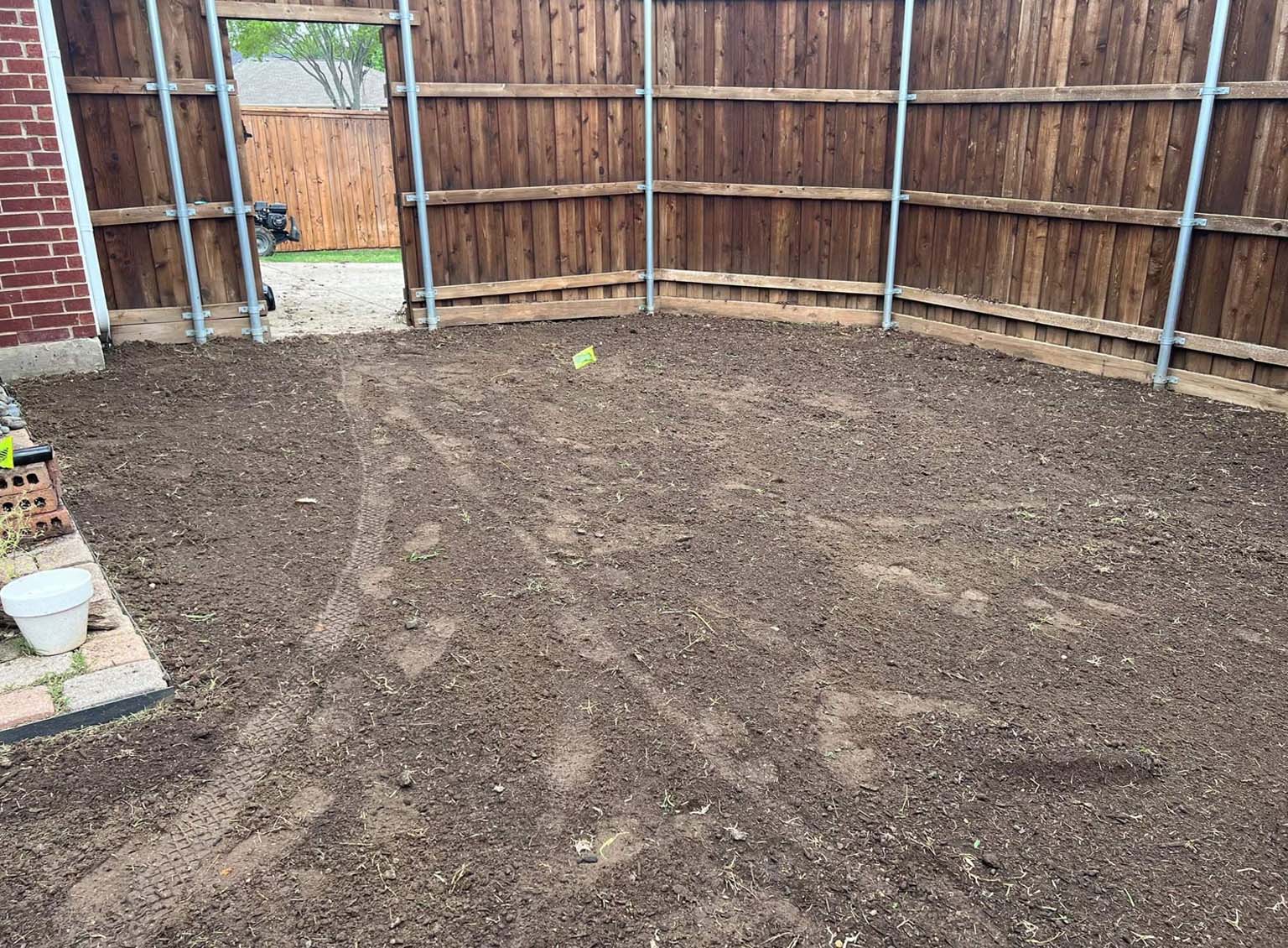
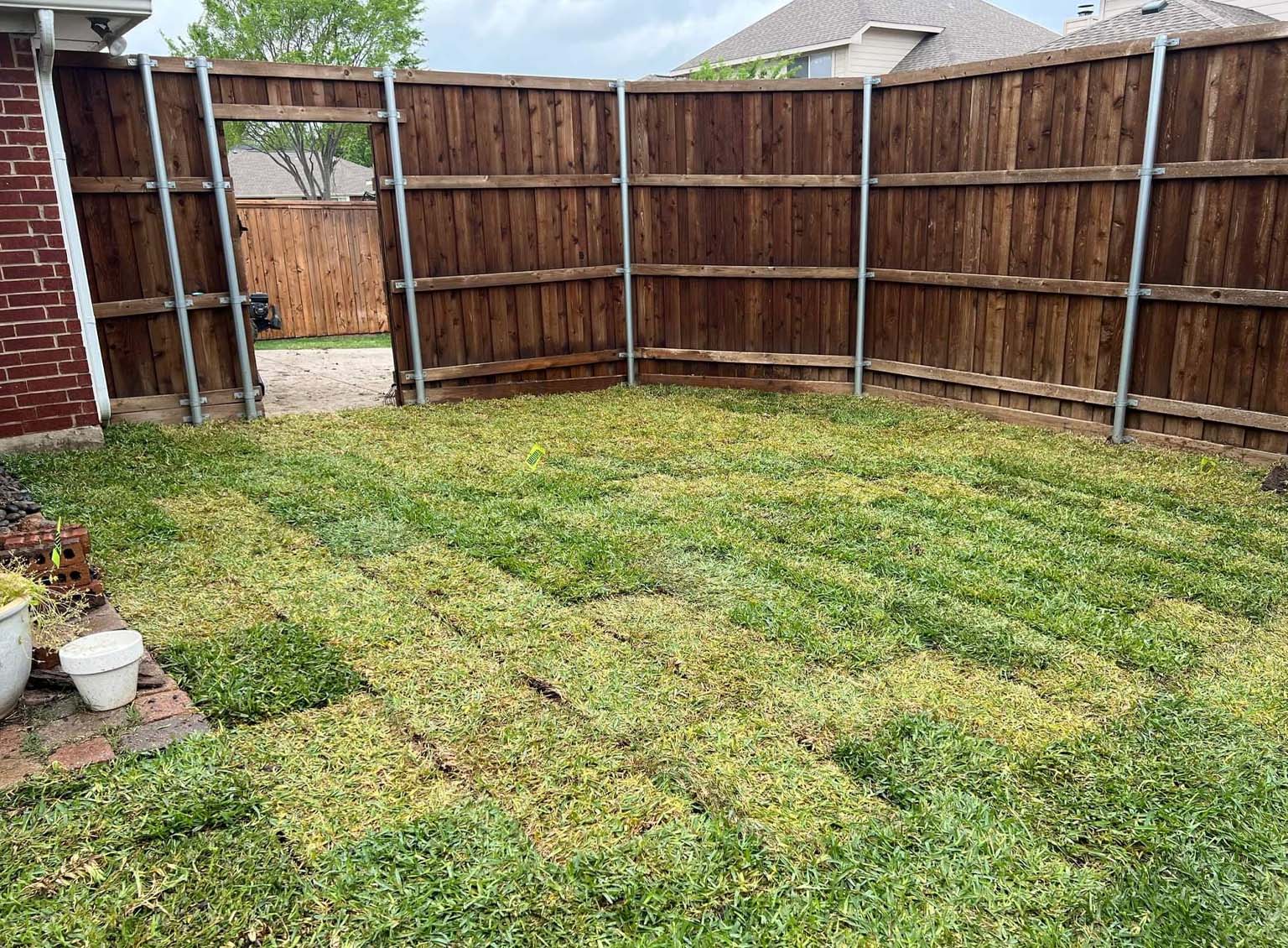
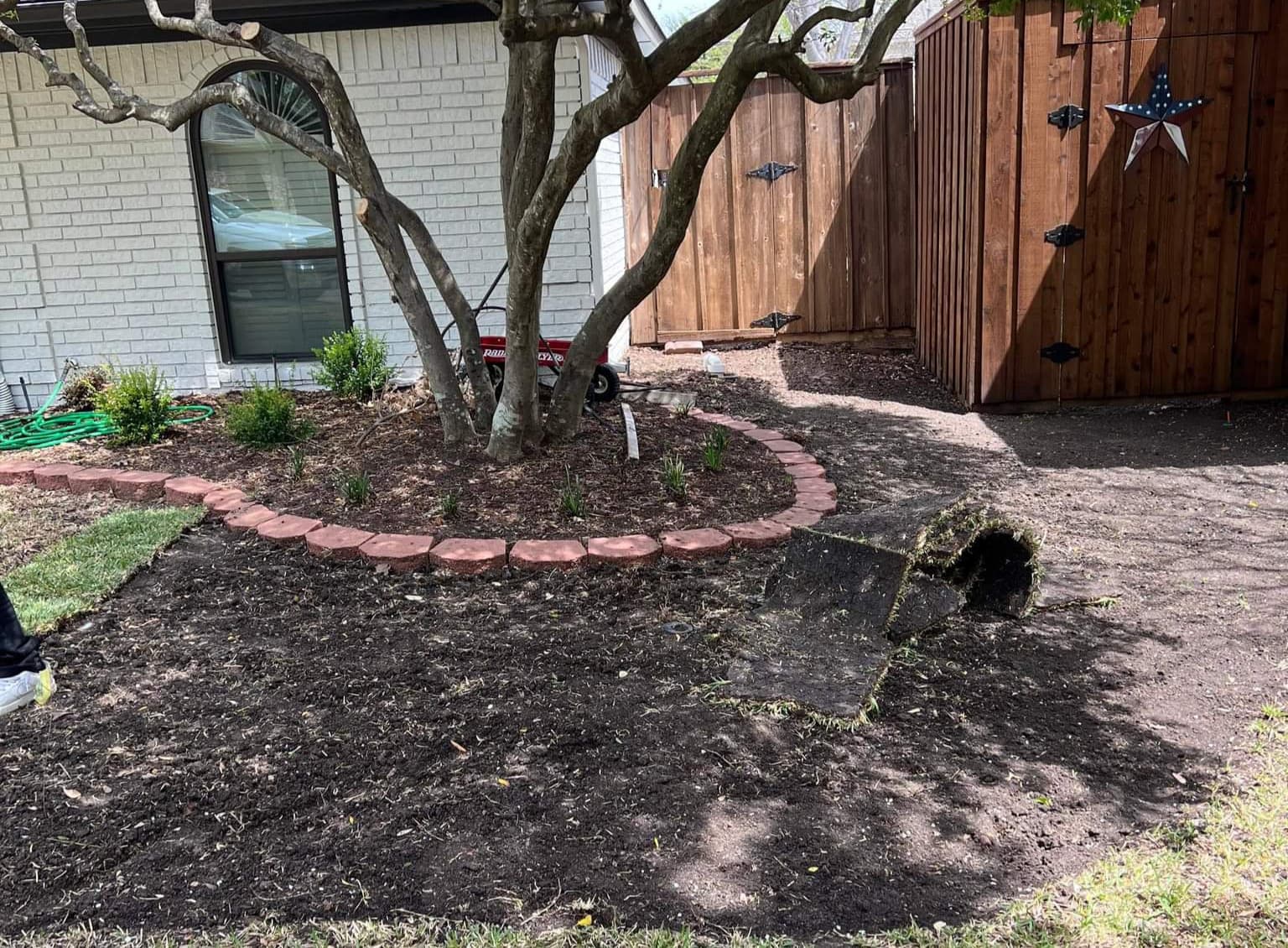
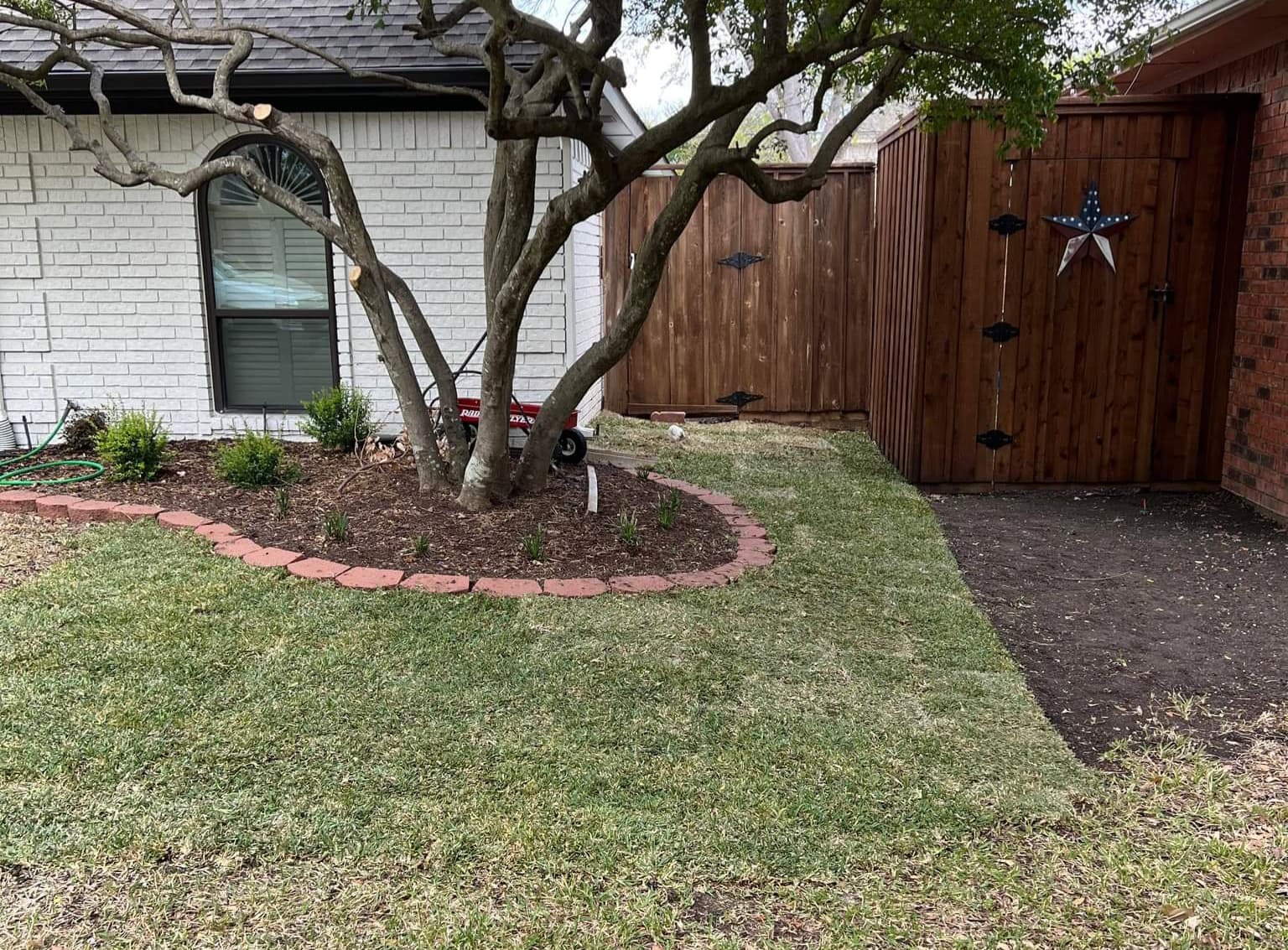
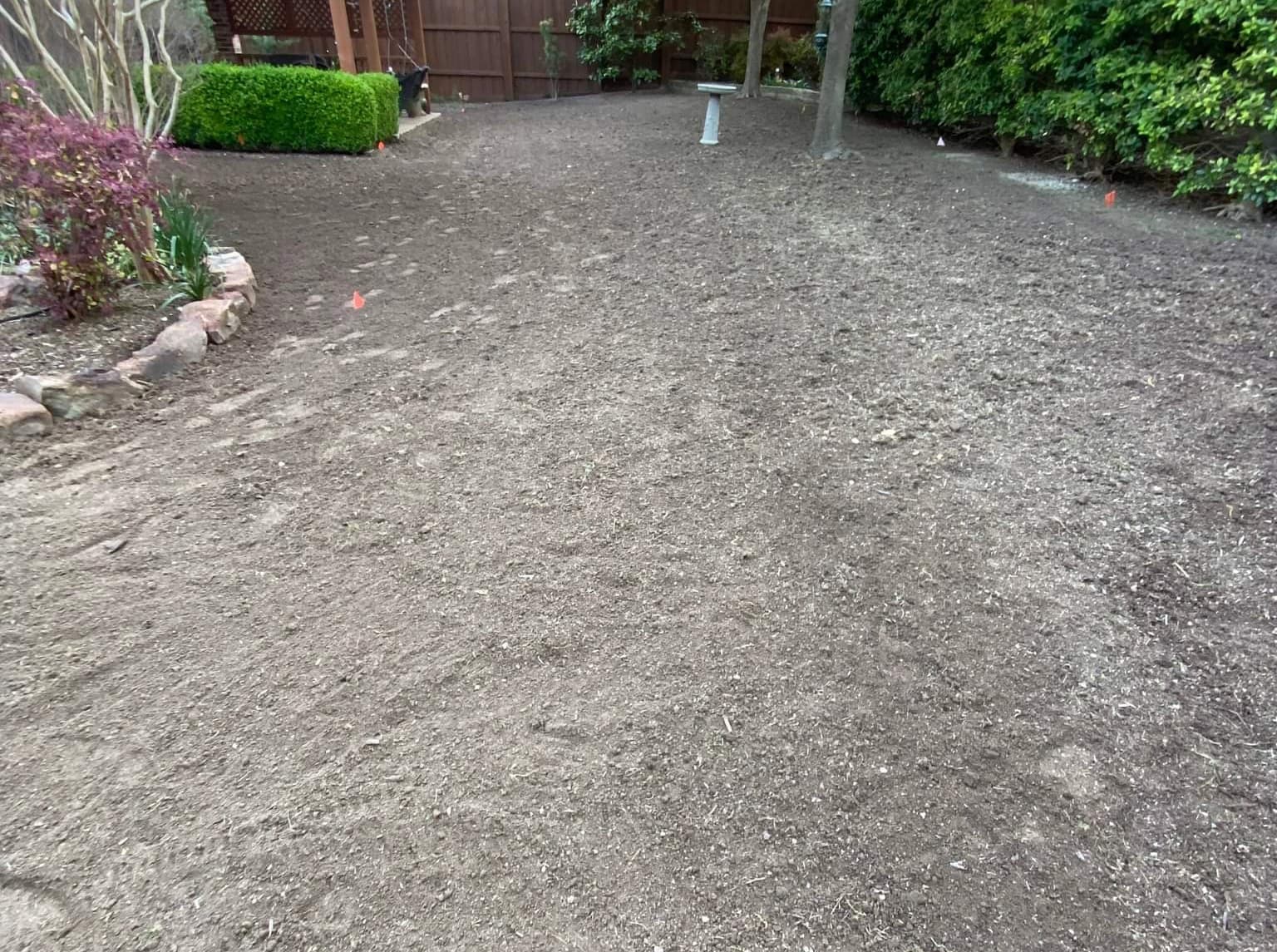
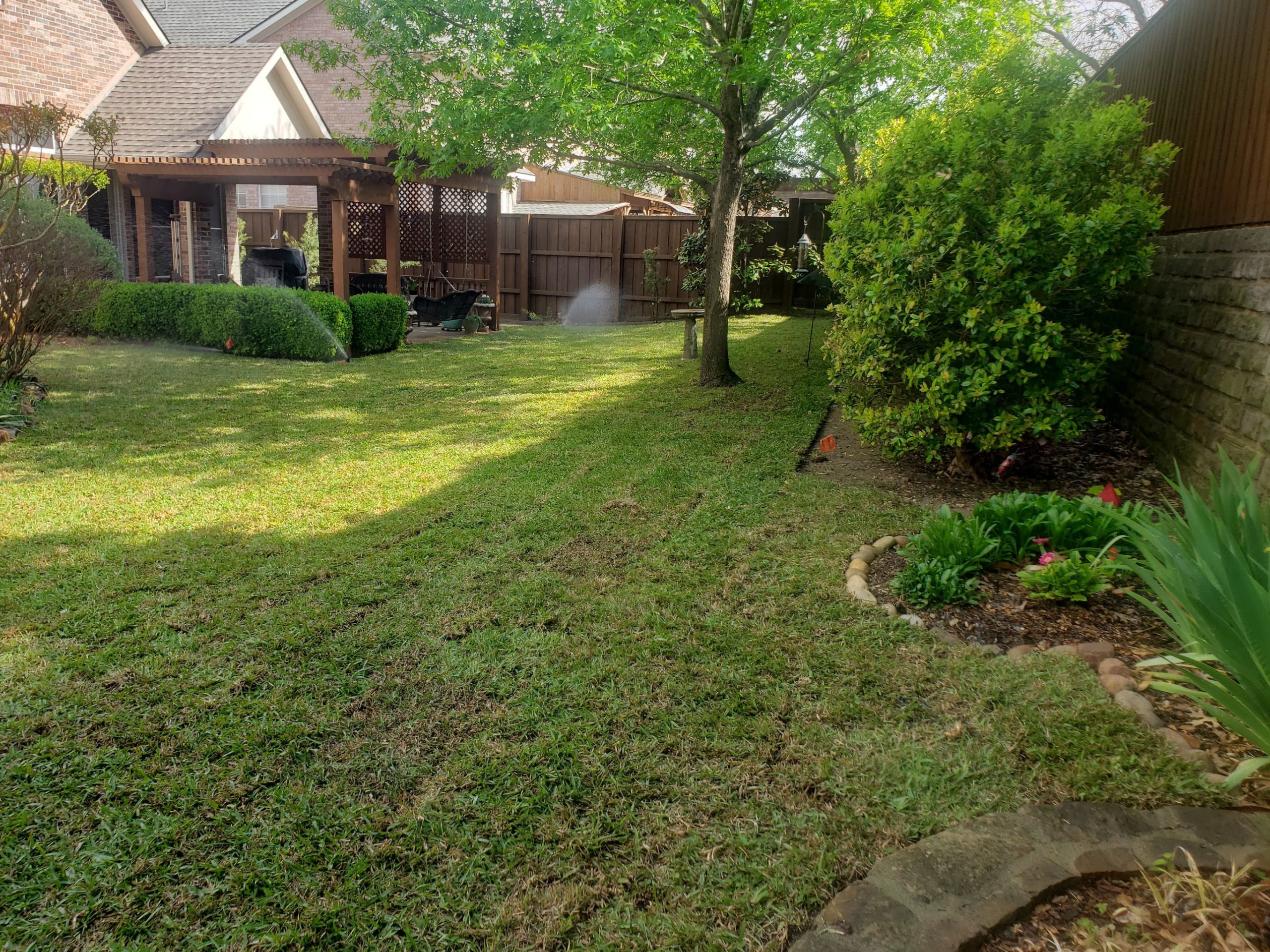
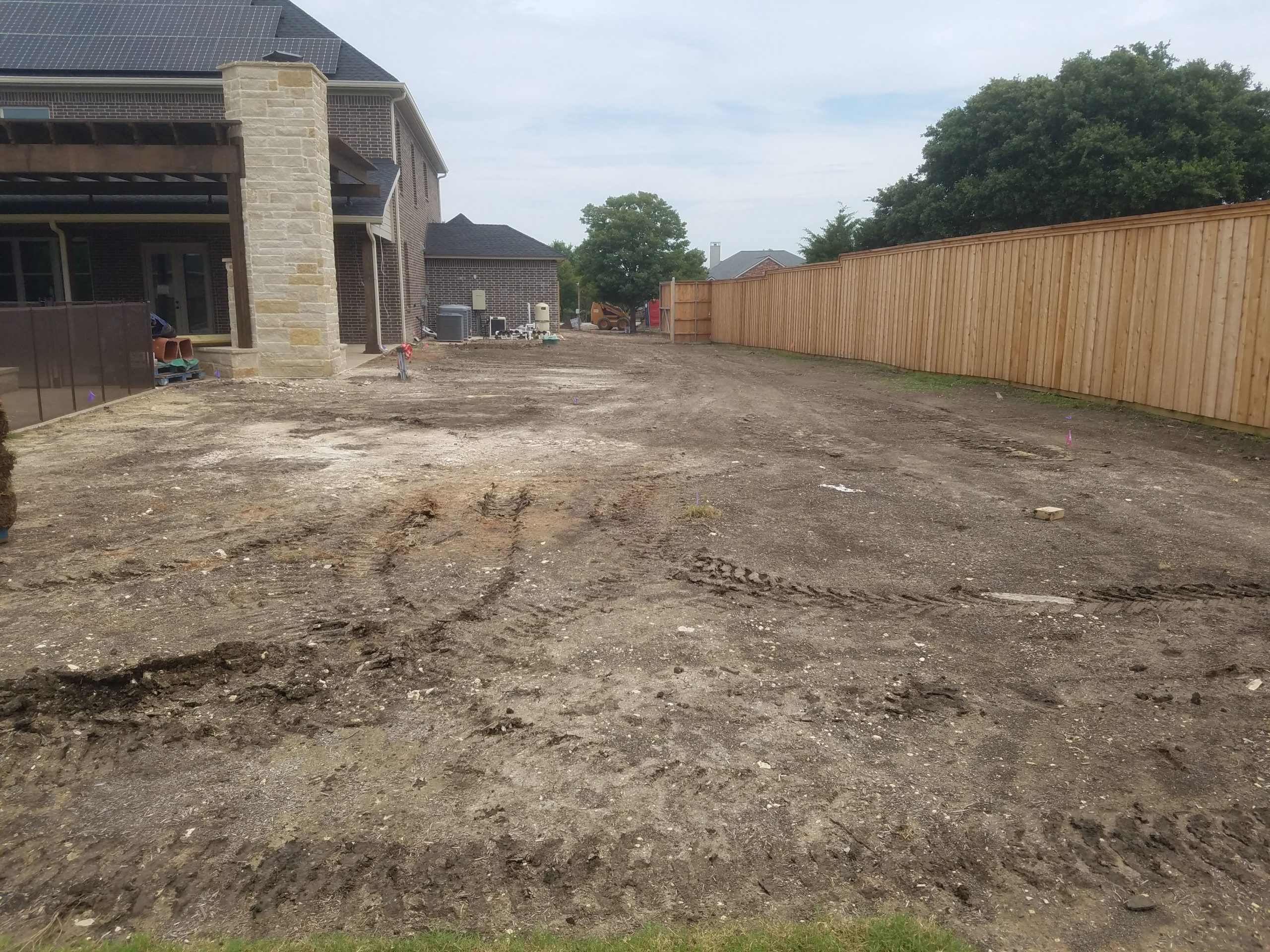
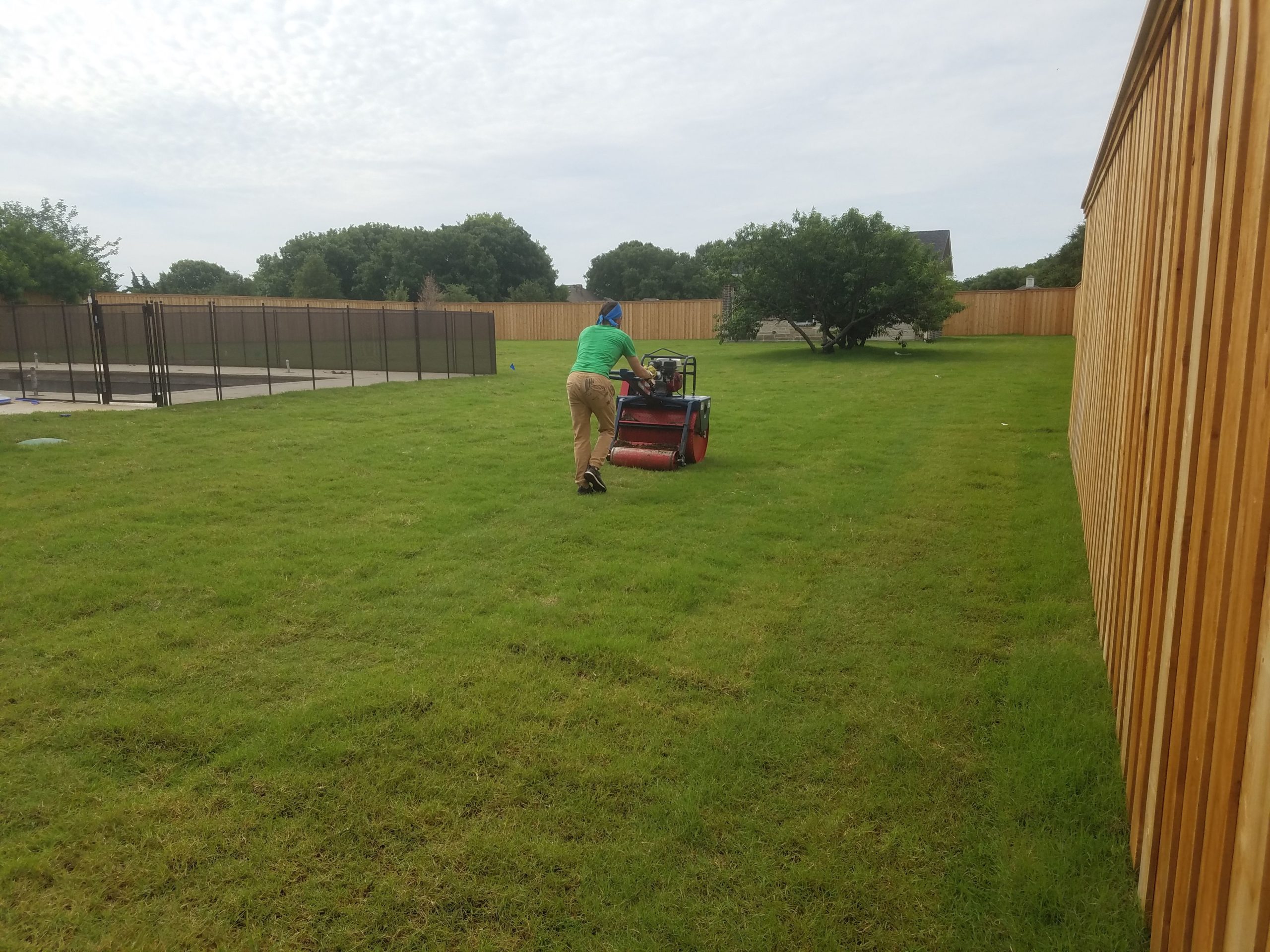
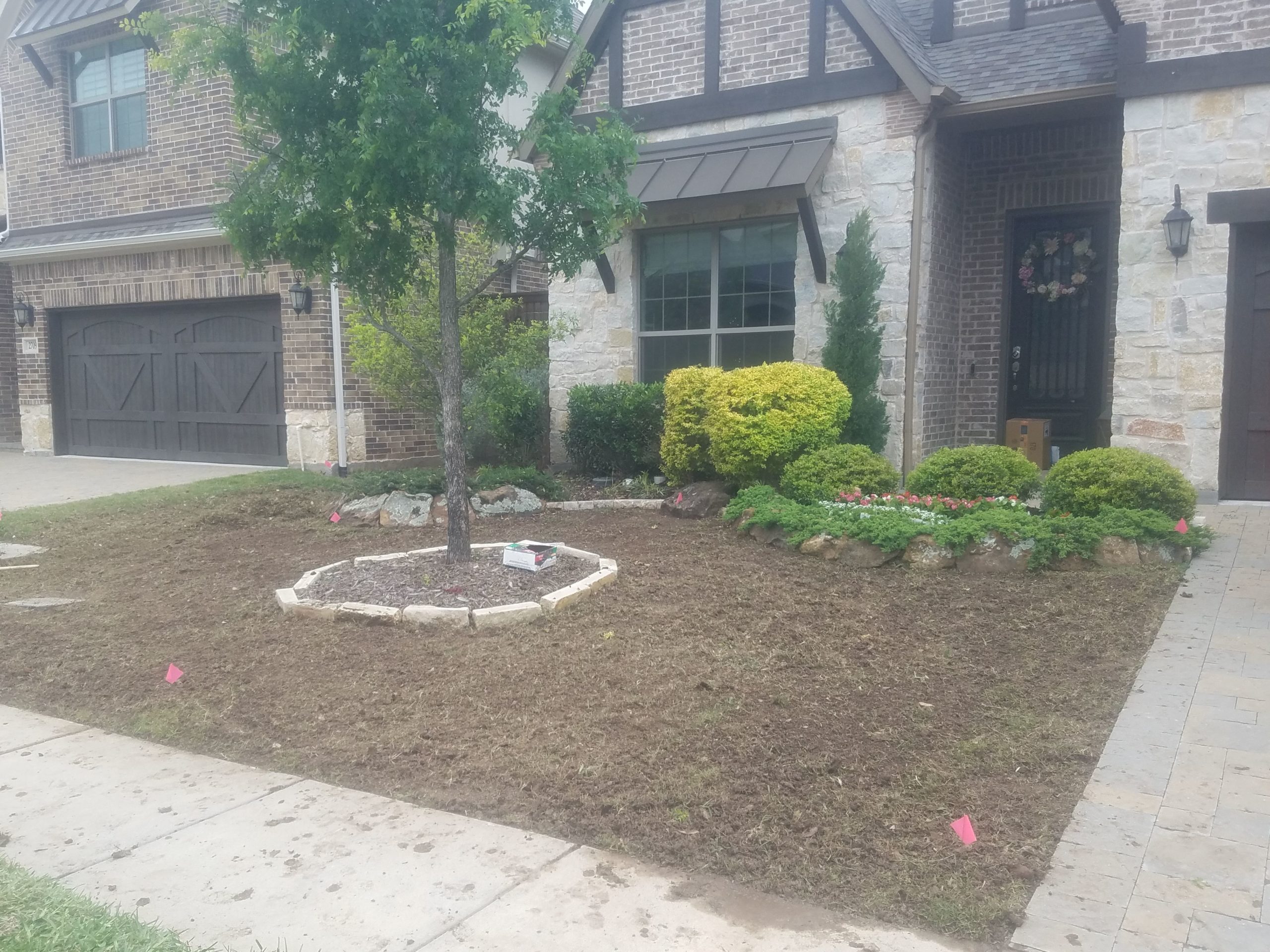
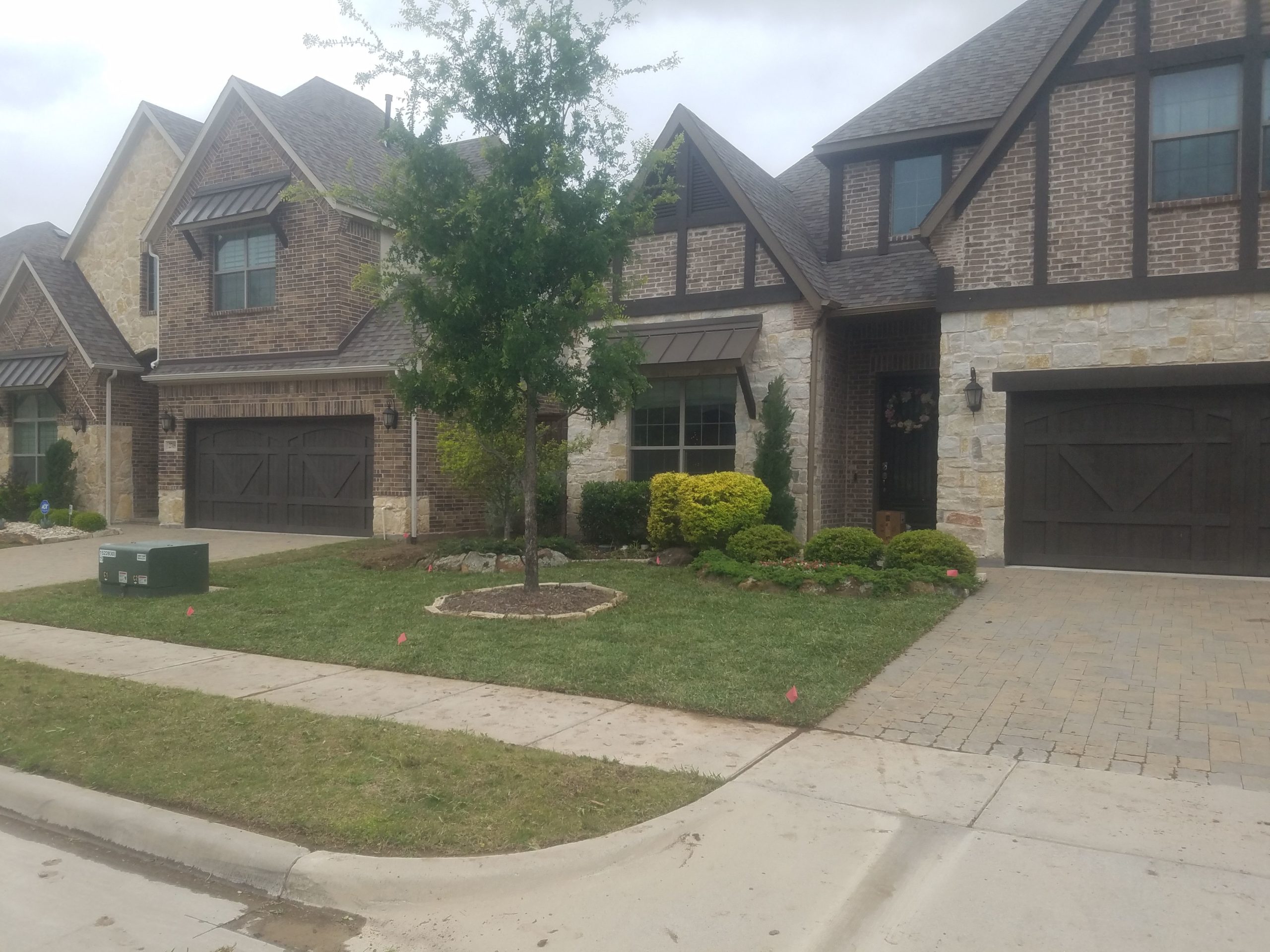
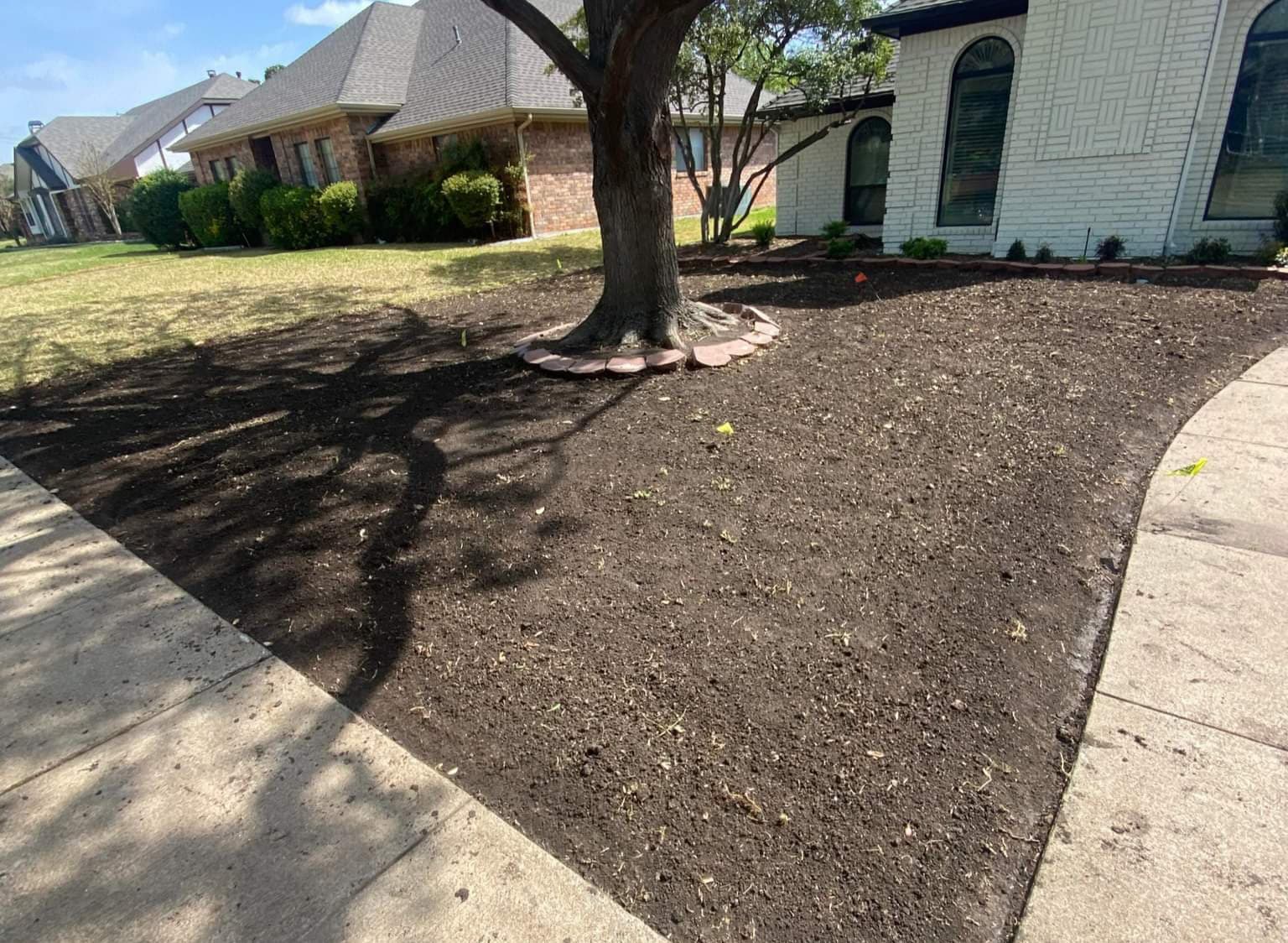
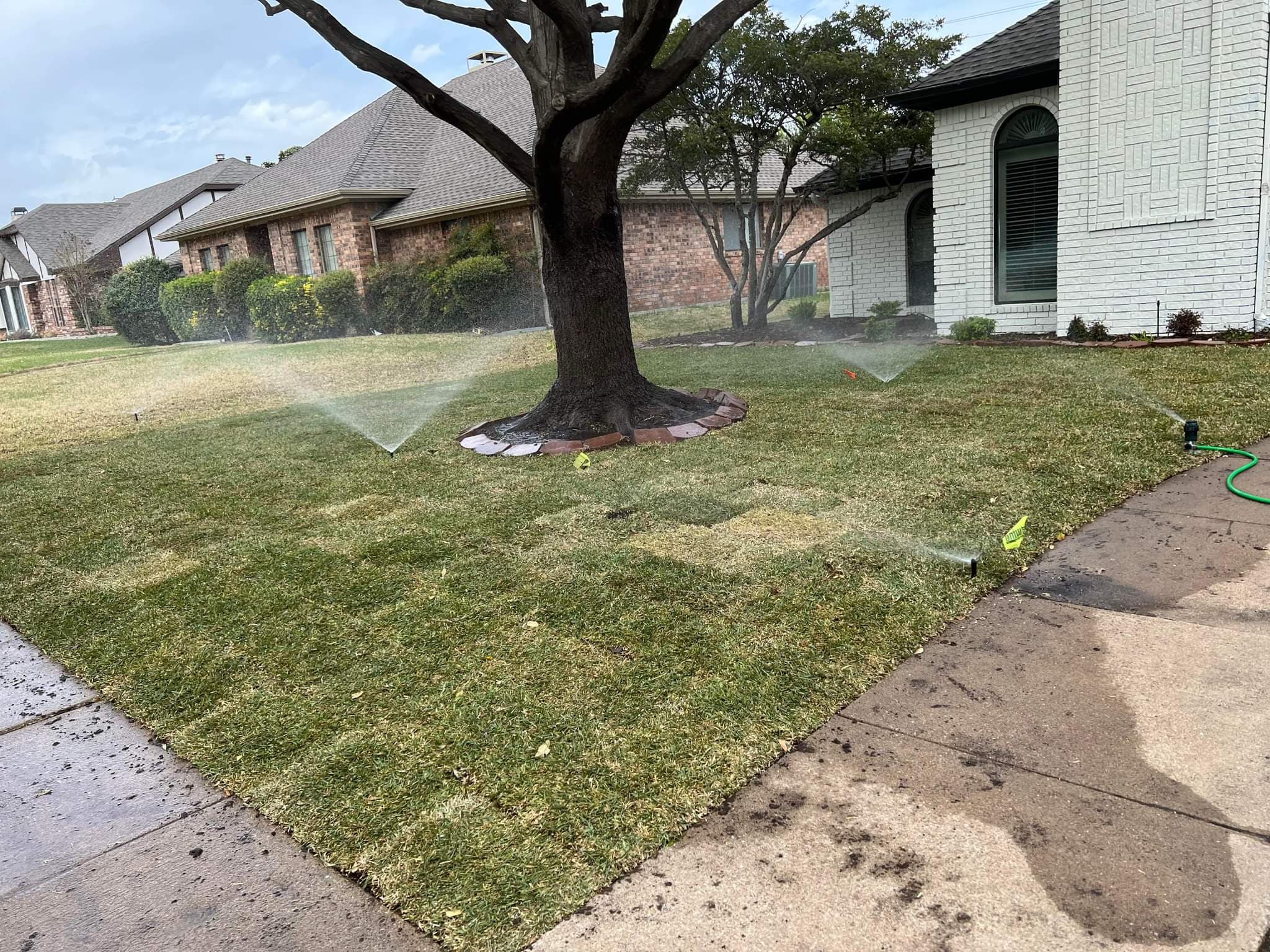
Fill out the form below, or call/text 469-833-3449 to get in touch.
Plano, TX and Surrounding Areas
Thanks to the loyalty of our customers, we have been able to grow our Plano Landscaping business throughout and around the North DFW area. We have been able to expand because our customers have appreciated the effort that we put into making their homes more beautiful and comfortable.